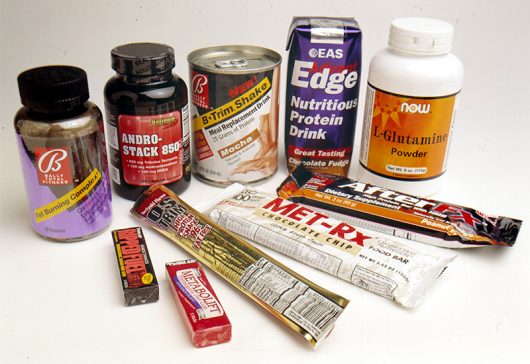
OSU Recreational Sports personal training coordinator Alycia Israel encourages students to be attentive when choosing supplements. Credit: Courtesy of TNS
As the holiday season approaches, some students may be interested in jump-starting their workouts with nutritional supplements to make up for large holiday meals and treats, or to boost their chances of sticking to a New Year’s resolution.
Alycia Israel, personal training coordinator with Ohio State Recreational Sports, said students should research workout supplements before choosing to use them.
“If you don’t understand what’s in it, then honestly, you just need to do yourself the service of researching, and looking it up will take a long time,” she said. “You really need to research why you think those supplements are appropriate for you.”
Israel said one way to make this process easier is to examine Food and Drug Administration labels on products. However, she added that it is not a requirement for supplement companies to get approval from the FDA to sell their products. Students can also look for a U.S. Pharmacopeia certification on supplements. The USP is a nonprofit scientific organization that confirms that the ingredients listed on supplements are actually in the product.
“There’s been suing and issues with people actually putting something on the shelf that you can buy that has zero of what it says in it,” Israel said. “With pre-workouts, intra-workouts (supplements), those types of things can get really, really gray so always do your research.”
Israel said pre-workout supplements, which contain nutrients such as B vitamins and calcium, along with chemicals such as caffeine, are generally used to help prevent muscle fatigue and enhance focus, while intra-workouts are branched-chain amino acids that can help keep muscles from breaking down during workouts.
Despite the potential for products to contain ingredients not listed on the label, Israel said the dangers of pre-workout and other nutritional supplements are most often due to misuse.
“The hype and the dangers around it are very, very much over-exaggerated,” she said. “If things get banned and things go south, it’s usually because someone took something incorrectly, it’s not because the actual supplement was harmful.”
Tyler Turner, co-owner of SupZilla on 11th Avenue, said his staff can help people choose supplements that will best help them achieve their goals.
“I don’t want to sell anybody something that they don’t need, so if they’re coming in just to build muscle: protein, amino acids and a multivitamin, all right, that’s like your first step,” he said. “Everything else after that point is just going to be the next step, it’s not necessarily essential.”
The campus area SupZilla location opened in April and the chain has locations throughout central Ohio. The store offers a variety of nutrition and workout supplements in the forms of powders, liquids and pills, along with protein bars and other protein-enhanced foods.
While not all of its products are FDA approved or USP certified, Turner said he can check ingredients to make sure there isn’t something in the product that a customer may be allergic or averse to, and the owners of the store are well-versed in products’ ingredients.
Israel said a consistent training regimen and a nutritional diet are more important than supplements to achieve results.
“If you think of training and eating as like a cake, your training and nutrition should be like your batter of your cake, supplements are the icing. If you don’t have your cake there’s no point for icing,” she said. “If people are thinking backwards, they have all of the icing and sprinkles and fancy things, but they don’t have a solid foundation, they’re not going to be able to build a cake.”


